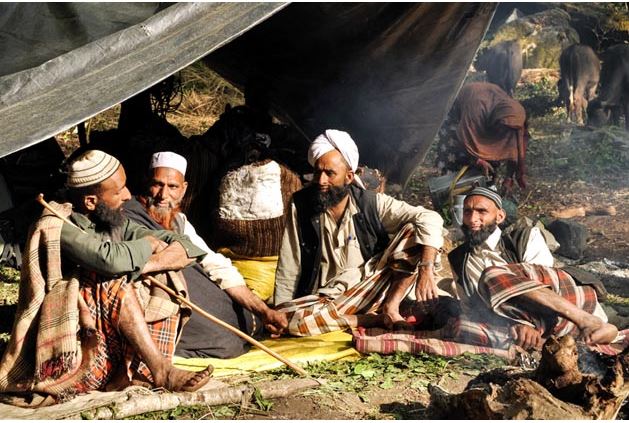Ghulam Jallani
In a time of limited resources and widespread unhealthy social discourse, it is imperative that we address the issue of hate propagated by certain aspiring young leaders against theJK Reservation Bill in the Lok Sabha. The selective avoidance, biased assimilation, and confirmation bias perpetuated by biased social media algorithms further exacerbate the division among the youth.
The recent rallies in Poonch, marred by pro-freedom slogans, are a result of the misinformation and misleading tactics employed by failed young aspiring leaders. Their actions are tearing apart the fabric of unity that once defined the Pahari-Gujjar-Bakarwal (PGB) Tehzeeb.
While it is crucial to approach this situation with no preconceived notions, we must acknowledge the impact of these divisive leaders on the younger generation. They are sowing seeds of hatred, driving a wedge between communities, and impeding the Government’s efforts to bring about progress and development.
It is heartening to note that the majority of Gujjar-Bakarwal (GB) people support the Government’s decision to protect their share of reservation, ensuring that it remains intact. The potential declaration of Poonch-Rajouri as a Tribal District, along with the establishment of a Tribal University, Eklavya Residential schools, and better infrastructure, holds promise for the upliftment of the tribal communities. However, the hate-filled rhetoric from these leaders undermines the spirit of progress.
But to truly revive the PGW Tehzeeb, it is essential to grant Scheduled Tribe (ST) status to the Pahari community. This move can bring about a transformation in the socio-economic conditions of the Paharis while preserving their unique cultural heritage. The ST status would open doors to affirmative action programs, reserved seats in educational institutions, and employment opportunities, providing much-needed support for the community’s progress.
The PGB Tehzeeb was once a testament to respect, unity, and coexistence among different communities. To protect and rekindle this heritage, it is crucial to counteract the influence of divisive leaders. Responsible journalism that promotes dialogue and unbiased education in institutions can equip the youth with the tools to discern truth from propaganda.
Additionally, political parties must prioritize policies that promote unity and inclusivity, holding divisive leaders accountable for their actions. Moreover, technology companies should take a responsible stance on algorithms to foster healthy conversations and combat hatred on social media platforms.
Preserving the PGB Tehzeeb also calls for celebrating the richness of Pahari, Gujjar, and Bakarwal cultures through inter-community dialogues and cultural exchanges. Supporting local artisans and traditional livelihoods can sustain the community’s cultural identity and heritage.
By integrating these efforts, we can rebuild unity, revive the PGW Tehzeeb, and pave the way for a brighter future. Granting ST status to Paharis can foster a sense of belonging within the larger tribal community, while the Government’s initiatives can provide opportunities for socio-economic development.
It is incumbent upon all stakeholders – the Government, community leaders, and the youth – to collaborate in fostering mutual understanding, respect, and a harmonious coexistence. Let us work together to overcome the forces of hate and division, embracing a future where the Pahari-Gujjar-Bakarwal Tehzeeb flourishes as a beacon of hope and progress for our nation. Through collective efforts, we can transform the narrative of hate into one of unity, understanding, and a brighter future for all.
It is time for the people of the Pahari-Gujjar-Bakarwal Tehzeeb to reclaim their heritage of unity and mutual respect. Let us unite against the forces of hate and division, embracing a future where all communities thrive together. Through collective effort, we can rebuild the PGW Tehzeeb and create a harmonious society for generations to come.


